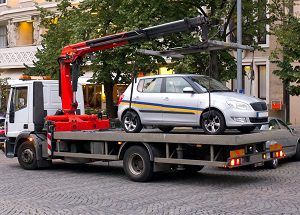Is Weed A Stimulant?
Is Weed A Stimulant?

There’s a lot of debate about whether weed is a stimulant or depressant. Some people say it makes them feel more energetic and creative, while others find it calming and relaxing. So what’s the real answer? Is weed a stimulant or depressant?
These are questions that many people ask and the answer is not always clear. The truth is that marijuana can have both stimulant and depressant effects, depending on the person and the dose. Additionally, cannabis can also have hallucinogenic effects so it can also be considered as one.
To explain this further, let’s take a closer look at the effects of weed on the system and what exactly can be considered as a stimulant, depressant, or hallucinogen.
Weed as a Stimulant
Many people often ask whether weed is a stimulant or a depressant. Is weed a stimulant? The answer is yes, but at the same time, it can also act as a depressant and as a hallucinogen.
So what is a stimulant? A stimulant is a class of drugs that speeds up the body’s central nervous system. This means that it can make you feel more awake, alert, and energetic. It can also increase your heart rate and blood pressure.
Some common examples of stimulants include caffeine, amphetamines and cocaine. These are substances that may have health risks, especially if they are used excessively.
But what about weed? While cannabis may not be as potent as other stimulants like cocaine or meth, it can still produce these effects in some people. The reason why weed may be considered as a stimulant is because in some cases, it can boost a user’s mood, as well as increase energy and alertness right after taking the substance.
Weed targets the dopamine release in the brain, which is associated with the “reward center.” This reinforces and encourages people to keep using cannabis to feel its euphoric effects.
Weed as a Depressant
On the other hand, weed can also act as a depressant which has the opposite effect. A depressant is a class of drugs that slows down the body’s central nervous system. This means that it can make you feel more relaxed, calm, and for some people, even drowsy. It can also lower your heart rate and blood pressure.
Common depressants used in the United States include Xanax, opioids, and alcohol. Like stimulants, these drugs can also be addictive and have health risks if they are used excessively.
The reason why weed may be considered as a depressant is because it can cause users to feel lethargic and unfocused. People who are struggling with insomnia often use cannabis as a way to help them fall asleep.
The relaxing effect is also sought after by people who are experiencing stress or anxiety. In places where cannabis is legal, it is not uncommon for people to use it as a way to unwind after a long day.
Weed as a Hallucinogen
Lastly, weed can also be considered as a hallucinogen. A hallucinogen is a class of drugs that alters your perception of reality. This means that you may see, hear, or feel things that are not really there.
Hallucinogens may also cause a user to have a heightened sense of awareness. They may see brighter colors, feel more sensitive to touch, or become less inhibited in their movements. Common examples of hallucinogens include LSD and magic mushrooms.
While cannabis is not as powerful as other hallucinogens like LSD, it can still produce these effects in some people. The THC in marijuana can deliver psychoactive effects which can cause hallucinations.
These effects are usually mild and temporary, but in some cases, they can be more intense. People who have used cannabis to experience hallucinations have described them as colorful, dream-like, and very vivid.
Marijuana Abuse and Addiction Treatment
Marijuana is a very controversial drug. Some people believe that it is a harmless substance that can deliver medical benefits while others think that it is dangerous and addictive.
The reality, however, is that it is possible to get addicted to marijuana and for some people, this type of substance abuse can hinder them from functioning properly in their everyday lives.
If you or someone you know is struggling with marijuana abuse, it is important to seek professional help. At the 24 Hour On Call Physical Rehab Center, can provide the necessary support and resources to help you on your road to recovery.
-
Popular Cities
-
Popular Category










